How to Choose the Right CMS for Your Website

In the vast world of website building and management, one of the key decisions you’ll need to make is selecting the right Content Management System (CMS) for your platform. With a plethora of options available today, finding the perfect match for your website can be a daunting task. But fear not, as we’re here to guide you through the process of selecting the ideal CMS that aligns with your website goals and requirements.
Understand Your Website Needs
Before diving into the sea of CMS options, it’s essential to have a clear understanding of your website’s specific needs. Consider the type of website you’re building – whether it’s a blog, an e-commerce site, a portfolio, or a business website. Each of these types may have different requirements in terms of functionality, customization, scalability, and ease of use.
Evaluate Ease of Use
One of the key factors to consider when choosing a CMS is its user-friendliness. A good CMS should make it easy for you to update content, add new pages, or make design changes without requiring advanced technical skills. Consider whether the CMS has an intuitive interface, a drag-and-drop editor, and a WYSIWYG (What You See Is What You Get) editor to simplify the content management process.

Scalability and Flexibility
As your website grows, you’ll want a CMS that can scale along with it. Look for a CMS that offers flexibility in terms of adding new features, incorporating third-party plugins, and handling increased traffic without compromising performance. Scalability is crucial for ensuring that your website can adapt to your future needs without requiring a complete overhaul of the CMS.
Customization Options
Every website is unique, and the ability to customize your site according to your brand identity and design preferences is essential. Evaluate the CMS’s customization options, such as themes, templates, and the ability to edit CSS and HTML code. A CMS that allows for extensive customization will enable you to create a website that truly reflects your vision and brand.
SEO-Friendliness
Search Engine Optimization (SEO) plays a crucial role in driving organic traffic to your website. When choosing a CMS, consider its built-in SEO features such as customizable meta tags, clean URL structures, XML sitemaps, and mobile responsiveness. A CMS that prioritizes SEO best practices will give your website a better chance of ranking high in search engine results.
Community Support and Updates
Opt for a CMS that has a strong community support system and a track record of regular updates and security patches. A CMS with an active community of developers and users can provide valuable resources, plugins, and troubleshooting assistance when needed. Regular updates ensure that your website remains secure, compatible with the latest web technologies, and optimized for performance.
Cost Considerations
While there are many free and open-source CMS options available, some may require additional costs for themes, plugins, hosting, or support. Evaluate the total cost of ownership of each CMS, including any potential expenses for customization, maintenance, and upgrades. Consider your budget constraints and choose a CMS that offers the best value for your investment.
Mobile Responsiveness
With the increasing use of mobile devices for browsing the internet, having a mobile-responsive website is non-negotiable. Ensure that the CMS you choose provides responsive themes or templates that adapt to different screen sizes and devices. A mobile-friendly website not only improves the user experience but also enhances your site’s SEO performance.
Security Features
Website security is of utmost importance to protect your data, content, and users’ information from cyber threats. Choose a CMS that prioritizes security and offers features such as SSL support, Two-Factor Authentication, regular security audits, and automatic updates. Look for CMS platforms with a strong track record of security measures and a proactive approach to addressing vulnerabilities.
Integration with Third-Party Tools
Consider the integration capabilities of the CMS with third-party tools and services that you may need for your website, such as email marketing platforms, analytics services, e-commerce solutions, and social media plugins. A CMS with a wide range of integrations will allow you to extend the functionality of your website and streamline your workflow by connecting with your favorite tools.
User Reviews and Recommendations
Before making a final decision, research user reviews, testimonials, and case studies of websites powered by the CMS you’re considering. Pay attention to feedback on ease of use, support quality, performance, and overall satisfaction with the CMS. Recommendations from other users can provide valuable insights and help you make an informed choice that aligns with your website goals.
The Bottom Line
Choosing the right CMS for your website is a critical decision that can impact your site’s performance, scalability, and overall success. By understanding your website needs, evaluating key factors such as ease of use, scalability, customization options, SEO-friendliness, community support, cost considerations, mobile responsiveness, security features, integrations, and user feedback, you can make an informed choice that aligns with your vision and goals. Remember, the perfect CMS is the one that not only meets your current requirements but also adapts to your future growth and evolving needs. Happy CMS hunting!


